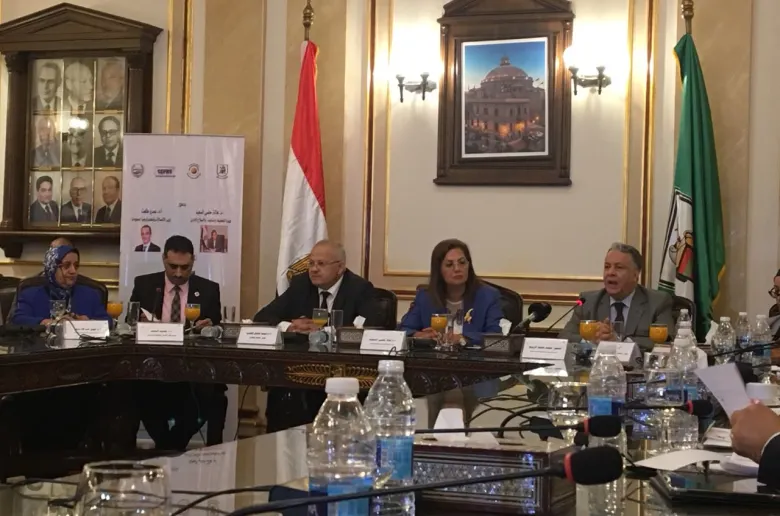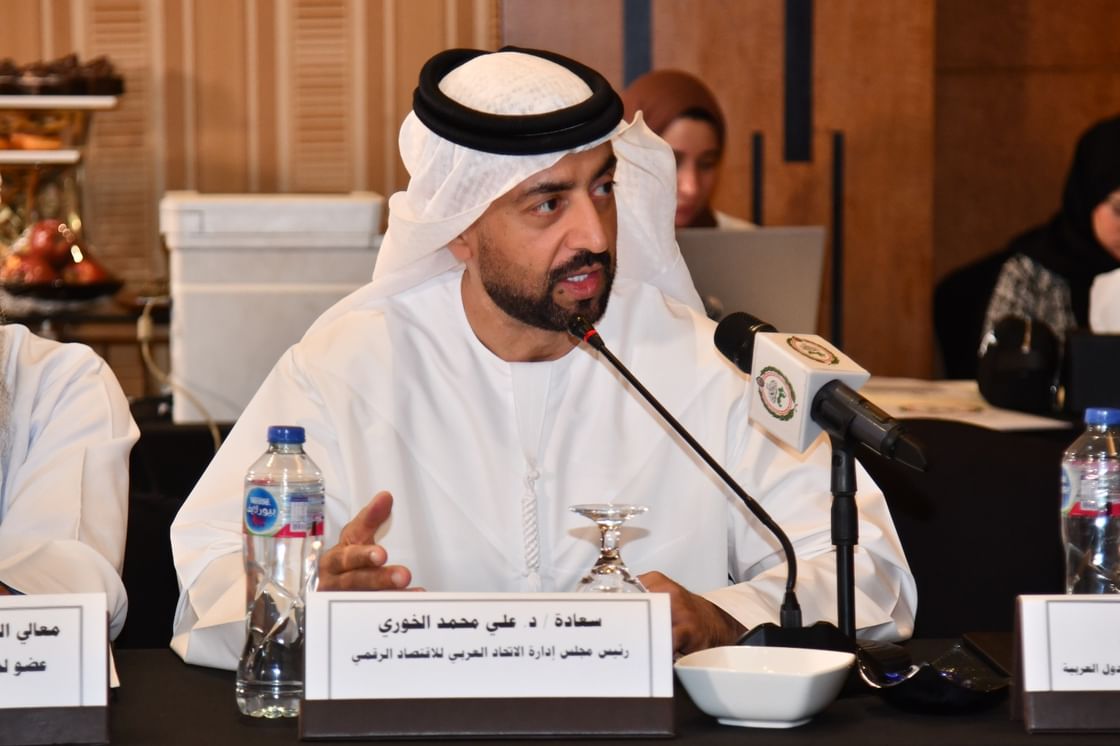September 2, 2018
The Council of Arab Economic Unity at the League of Arab States signed an agreement with Cairo University to develop a common Arab vision for the digital economy, with support from the United Arab Emirates. The agreement includes the participation of international and Arab institutions and organizations, as well as a group of senior global officials and specialists in the field of the digital economy.
The agreement was signed by Ambassador Mohammed Mohammed Al-Rabie, Secretary-General of the Council of Arab Economic Unity at the League of Arab States, and President of Cairo University, Dr. Mohammed Osman El-Khosht. The ceremony was held at Cairo University’s headquarters in the prestigious Grand Celebration Hall, which has witnessed many important historical events in the Arab world and the Arab Republic of Egypt. The ceremony was attended by a number of ministers and officials from Arab countries.
Ambassador Mohammed Mohammed Al-Rabie emphasized that this agreement, supervised by the Arab Federation for Digital Economy, represents a practical application and a starting point for launching several future initiatives and projects to support Arab economies.
Al-Rabi’ explained that this project, which is one of the most important recommendations of the Digital Economy Conference recently held in Dubai, United Arab Emirates, aims to develop and grow the digital economy in the Arab region, leveraging the technologies of the Fourth Industrial Revolution. He added that this vision will support economic stability in the Arab region and enhance joint Arab action.
He expressed his sincere thanks and gratitude to His Highness Sheikh Mohammed bin Zayed Al Nahyan, Crown Prince of Abu Dhabi and Deputy Supreme Commander of the Armed Forces, for sponsoring this major and ambitious Arab project. This project affirms the UAE’s pioneering role and its interest in joint Arab action, particularly in the economic and social fields. He also thanked Sheikh Saif bin Zayed Al Nahyan, Deputy Prime Minister and Minister of Interior of the UAE, and Supreme President of the Arab Federation for Digital Economy, for his support and follow-up of this Arab project and his wise vision that this work will benefit the economies of Arab countries and Arab citizens and strengthen joint Arab action.
For his part, Dr. Mohammed Elkhosht, President of Cairo University, expressed his pleasure at hosting this event and the confidence of the Arab League, represented by the Council of Arab Economic Unity and Arab leaders, in cooperating with one of the most prestigious Arab universities, Cairo University, in preparing this strategic study. He expressed his hope that the joint cooperation agreement would succeed in launching many successful Arab initiatives that would benefit the Arab region, from the Gulf to the Atlantic. He emphasized the importance of the role of educational institutions in serving and developing societies, as well as ensuring that their outcomes meet practical and realistic needs and engage with executives and professionals to produce a useful reality that supports growth and development.
Dr. Ali Mohammed Al-Khouri, Advisor to the Council of Arab Economic Unity and Chairman of the Board of Directors of the Arab Federation for Digital Economy, added that this Arab vision comes at an important time, especially in light of the rapid changes in the global economic landscape, the dire economic situation in Arab countries, and the broad opportunities offered by the technologies of the Fourth Industrial Revolution for human societies in terms of economic, social, and humanitarian development. This requires an advanced economic, social, and political structure that is aligned with the new realities of the concept of comprehensive and sustainable development.
He pointed out that Arab countries have a great opportunity to achieve leaps in this field, and that investing in digital transformation will be feasible and attractive if directed to the Arab region’s market, which exceeds 400 million people.
Dr. Najwa Samak, Head of the Center for Economic and Financial Research and Studies, explained that this strategic study will highlight the most important Arab initiatives and projects that contribute to the development of the Arab digital economy. She pointed out that the support of Arab leaders and the adoption of a strategic vision will provide a significant opportunity to finance and direct joint investments, noting the role of development funds and major economic and banking alliances in implementing these projects with strategic and economic feasibility, which will play a supporting role in local development plans in Arab countries.










